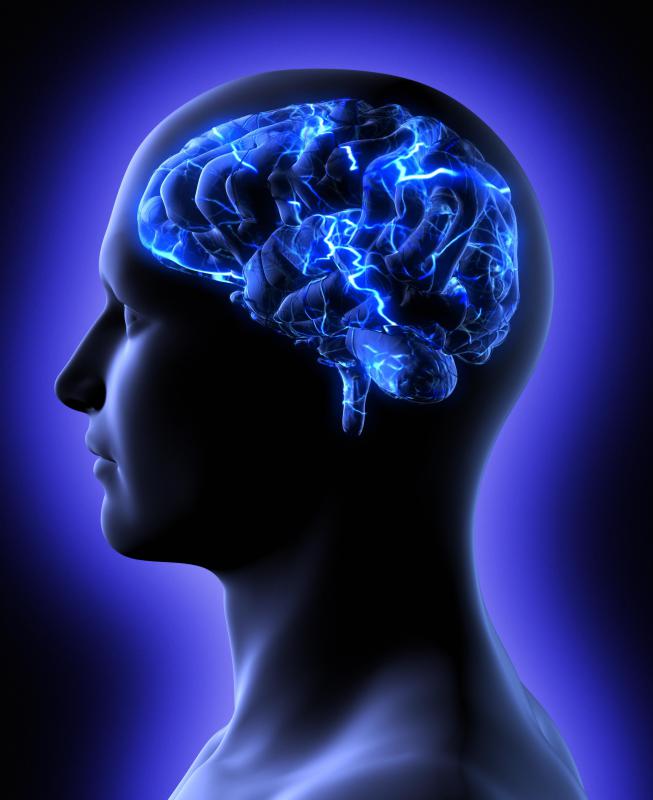At TheHealthBoard, we're committed to delivering accurate, trustworthy information. Our expert-authored content is rigorously fact-checked and sourced from credible authorities. Discover how we uphold the highest standards in providing you with reliable knowledge.
What Are the Effects of Nicotine on the Brain?
Nicotine is a naturally occurring chemical substance found in the leaves of the tobacco plant. Many people smoke or chew tobacco products to ingest this substance. There are several effects of nicotine on the brain, including an increase in the release of neurotransmitters that stimulate the awareness, pleasure and memory centers. Some users become physically and psychologically addicted to these effects over time and suffer withdrawal symptoms if they quit ingesting tobacco. Research studies have been performed to see if nicotine might help patients suffering from Alzheimer’s disease or Tourette’s syndrome.
For centuries, people have been smoking and chewing leaves from the tobacco plant to get the pleasurable effects of nicotine on the brain and body. Nicotine is a fast-acting stimulant and can cross the blood-brain barrier less than a minute after smoking. Once this chemical compound is in the brain, it binds to the acetylcholine receptors and promotes the release of several neurotransmitters. It can do this because nicotine is similar in shape to the body’s acetylcholine molecules.

The release of these neurotransmitters is one of the most important effects of nicotine on the brain, because these molecules help regulate many of the body’s functions. The released neurotransmitters stimulate the cholinergic areas of the brain and help improve attention span and reaction time. When a person becomes dependent on nicotine, he or she may find it difficult to concentrate or focus on a specific task if going a while without the substance. Tobacco breaks down quickly in the human body, so addicts may need to smoke or chew some on a regular basis to maintain the desired effects of nicotine on the brain.

Dopamine is another neurotransmitter that is released after the nicotine compound has been absorbed. This neurotransmitter is believed to affect the pleasure areas in the reward centers of the brain. Stimulating these areas makes a person more relaxed and content and may help suppress hunger in some people. These effects may explain why people treat nicotine as a reward during their work day. This also may explain why some people gain weight after quitting, because the nicotine was acting to suppress their hunger.

While tobacco use can have significant drawbacks, some researchers believe the effects of nicotine on the brain can be used to help treat certain conditions. The first neurons damaged by Alzheimer’s disease are the same ones stimulated by nicotine, so some have theorized that nicotine use could help slow the progress of the disease. Nicotine patches also are sometimes given to patients suffering from Tourette’s syndrome to help control their physical behaviors.
AS FEATURED ON:
AS FEATURED ON:













Discuss this Article
Post your comments